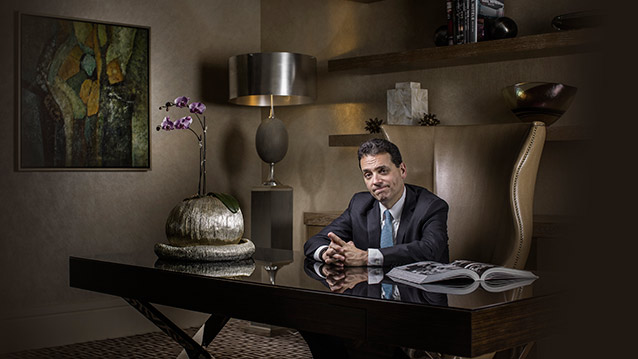Loading component...
At a glance
Updated 25 November 2022
When the left hand doesn’t know what the right hand is doing, you know the company is in trouble.
That tried and tested aphorism can also work on a personal level, where times are a-changin’ for “left brain-orientated” individuals such as accountants, lawyers and software engineers, who have ruled the professional roost for more than 50 years.
With even high-level technical work now being done by machines or outsourced to cheaper operations overseas, the future belongs to a person with a very different kind of mind, says Daniel Pink, contributing editor to Wired magazine and author of the popular and engaging book, A Whole New Mind: Moving from the Information Age to the Conceptual Age. (US media icon Oprah Winfrey bought 4500 copies of the book when it was first published in 2005.)
Pink believes we are on the cusp of a transformative age in business “where the qualities of the right brain – inventiveness, empathy and meaning – will come into play”.
Key Conceptual Age careers include services hard to access remotely, or where a machine simply can’t take the place of a human, such as nursing, teaching, massage therapy and yoga instruction.
Design work is also significant in a world where graphic designers, interface designers and industrial designers abound.
The gamut of Web 2.0 technologies and beyond also capture the professionals of the new age, including social media consultants who, Pink says, “must be able to detect patterns, tell stories and design interactions” with the entire video and mobile game business – and just about any small start-up entrepreneur.
"When people know why they’re doing something, and especially when they know what they’re doing contributes to a larger whole, they tend to work better."
But if you are not in the touch-and-feel or technology businesses, don’t give up yet: the so-called right brain qualities can be developed to benefit your business now, Pink says.
“The key is to realise that these abilities are fundamentally human abilities. Everybody has them. It’s just that for some of us, those abilities haven’t been called out of hiding. They’re like muscles that haven’t been used for a while.
It’s just a matter of working them back into shape, and many people are pleasantly surprised that they’re better at some of these things than they expected.”
With automation and outsourcing on the increase, enlightened professionals are going to have to be more conceptual and a bit more creative.
“It will be about identifying emerging problems rather than solving existing ones,” Pink says.
Value-added services are the name of the game, he says, and that brings empathy and creative thought processes into play.
“Face-to-face interactions and higher-level negotiations are becoming more important. It’s very difficult for machines to build relationships, I think that some things require a certain amount of physical presence as well.
"You can’t really outsource delicate negotiations to a video link-up in Manila, nor is there an algorithm that’s going to do our negotiation for us, I don’t see that happening any time soon.”
It’s the day-to-day compliance work and low- to mid-level work that is most at risk from twin forces of technology and low-cost outsourcing.
Pink, who trained but did not practise as a lawyer, cites the changes in the legal profession as an indicator of the way the wind is blowing.
“I think we’ve underestimated in the past 40 years how much of legal practice was relatively simple and straightforward. It was about having access to forms and filling them out, and going through large troves of documents looking for keywords. That gets automated very quickly.”
It’s a similar story for tax accountants in the US and elsewhere, he says.
“The US tax code is extremely complicated. You can spend huge amounts of money trying to navigate it, but now a software package costing US$29 can do the job, compared with spending US$800 on an accountant.”
We are in the early years of the Conceptual Age and no one knows how long this era will last, Pink says.
“The big tipping points have been widespread broadband, big data and the rise of India and China, all of which have occurred recently.
"As for what’s next, I’m not sure. One thing that seems certain is that the Agricultural Age lasted longer than the Industrial Age, which lasted longer than the Information Age … so it seems certain the Conceptual Age will have an even shorter life.”
How we will think about rewarding people was also tackled by Pink in his next book, Drive.
By drawing on 20th century research that shows people are fundamentally drawn to problem-solving and that a job well done can be an end in itself, the creative work we are undertaking in the Conceptual Age means it’s time to dispense with the carrot-and-stick notion of reward – relying on the understanding that if you perform in a certain way then it will be rewarded.
CPA Virtual Congress 2022 | Potential Unlimited
Pink calls these “if-then” rewards.
“The broad point is that [these] controlling contingent motivators work reasonably well for simple, algorithmic tasks, but far less well for more complex creative tasks.
"So the biggest no-no of all, which happens a lot, is deploying ‘if-then’ rewards for everything rather than for the tasks for which they demonstrably work.”
This doesn’t mean money is no longer important.
“Pay people well and take money off the table,” Pink says, adding that those companies that come up with alternative ways of motivating staff are best placed to get the most from their people.
He singles out not-for-profits as the organisations that do this well.
“One thing non-profits often do better than for-profits is animate the workplace with a sense of mission and purpose,” he says.
“When people know why they’re doing something, and especially when they know what they’re doing contributes to a larger whole, they tend to work better.”
In the commercial sphere it’s companies such as Google, with its vaunted “Google time” where staff can use 20 per cent of their working time to pursue special projects.
The search engine giant says many of the projects in the Google Lab started out as staff pet projects.
Pink also applauds Atlassian founders Scott Farquhar and Mike Cannon-Brookes for giving their staff the autonomy to work on special projects.
Formerly known as FedEx days – until the logistics giant put a stop to it – Atlassian staff are allowed take a day to work on any idea they want, then deliver results to the rest of the company the following day.
Autonomy doesn’t just stop at one-off time for personal projects. It’s also time to show the old-school command and control bosses the door.
The best leaders today, says Pink, “have high standards, articulate a sense of mission, give people plenty of freedom, provide rich, regular feedback and protect their employees from bureaucratic nonsense”.
So-called right brain qualities can be developed to benefit your business now, Pink says.
Lately Pink has turned his microscope on an oft-maligned profession, sales.
In his 2012 book, To Sell is Human, he discovers – by unearthing yet another trove of social science research – that we all are, or need to be, salespeople.
“I got interested in sales because of questions readers sent me after Drive. They essentially asked, if controlling extrinsic rewards are ineffective for complex work, what about sales? Are sales people different? That took me down the path to learning more about sales and eventually to writing more about it,” he says.
Forget the outdated idea of door-to-door or cold sales. The new-age salesperson engages, interacts and tells a compelling story – and it’s not just the sales professionals at it, it’s all of us. Pink cites research that shows that 40 per cent of time in business is spent in non-sales selling, regardless of profession.
While public practitioners and consultants actively engage in sales activity in their client interactions, the same can be said of in-house finance professionals who sell internally, Pink says.
“They have to sell their way of doing things, their ideas for doing things. If they’re managing people, they’re selling their employees on doing something different or doing something in a different way.
"Even if they’re looking for a job, they’re selling themselves.”
How Daniel works

In 2002 Daniel Pink wrote his first book, Free Agent Nation, about the ins and outs of working for yourself. It’s a topic close to home for Pink, who – like 25 million-plus other Americans – works for himself from a garage behind his house.
“There are two employees in the company, myself and my wife. I have a very lean operation, I’m a strong believer in minimal and low overhead,” he says.
Pink’s last “real” job was as a speechwriter for then US vice-president Al Gore, which he left in 1997 after a career in politics that included working as an aide to US labor secretary Robert Reich.
“I was interested in politics, I thought it was a way to have a big effect on the world. Then at a certain point I became disgusted with it and [I thought] what was really affecting people’s lives was what was going on in business and technology and in the workplace.
I just decided if I follow my own really deep interests, can I hack out a living? I figure if I’m interested deeply in something, then other people are. I’m not that special.”
Pink says when he’s writing a book he sets a pretty rigid schedule.
“I get to my office at a certain time each morning and set myself a quota of words, say, 500. I’m not permitted to do anything else until I’ve reach my total. Sometimes it’s easy, other times excruciating. But the discipline is something most writers need. And 500 words a day really piles up over time.”
However, he admits to indulging in time-wasting habits such as “aimlessly trawling sports sites on the internet. I overcome bad habits by trying to turn off my email and browser when I have work to do”.
Like many writers he is often asked where his ideas come from.
“First, I keep massive files of ideas – newspaper clippings, ideas jotted on paper and websites – in electronic and paper form.
I regularly review and harvest these. Second, I hear from lots of readers and that often leads me in promising directions.”
Key impacts on the way we work
Outsourcing: It’s not only manufacturing jobs that have moved overseas. Accountants have lost compliance work, lawyers research and doctors diagnostic work to lower-cost developing countries.
Mobile technology: Makes the collaboration of far-flung individuals easier. All a skilled professional service needs is a phone and a laptop.
Women in the workforce: In the US labour market there are more men than women. In order to keep women in work, more flexible styles of working are needed.
Ageing population: There is already an emerging suite of offerings for older people. In the US the fastest-growing segment is people over 80.
Changing audience: Rising inequalities in advanced economies are matched by burgeoning middle classes in places such as India, China, Turkey, Indonesia and Brazil, which are spawning potential markets of hundreds of millions of people.
Changing motivation: People no longer work just for pay. Greater involvement is needed and companies need to respond. Not-for-profits are the organisations that understand this imperative the best.

